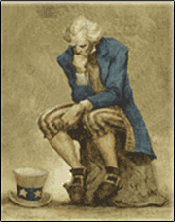
(function(d, s, id) { var js, fjs = d.getElementsByTagName(s)[0]; if (d.getElementById(id)) return; js = d.createElement(s); js.id = id; js.src = “https://connect.facebook.net/en_US/sdk.js#xfbml=1&version=v3.0”; fjs.parentNode.insertBefore(js, fjs); }(document, ‘script’, ‘facebook-jssdk’)); –>
–>
February 3, 2024
Some of my friends have questioned my past affiliation with the Democrat party. I understand the reason for their inquisitiveness. Nevertheless, let me say that there is no similarity between the party of old and the party of now. The party of old had a humanistic ideology that I shared with Cuban national hero José Martí while embracing fiscal conservative policies.
‘); googletag.cmd.push(function () { googletag.display(‘div-gpt-ad-1609268089992-0’); }); document.write(”); googletag.cmd.push(function() { googletag.pubads().addEventListener(‘slotRenderEnded’, function(event) { if (event.slot.getSlotElementId() == “div-hre-Americanthinker—New-3028”) { googletag.display(“div-hre-Americanthinker—New-3028”); } }); }); }
Regardless of my political affiliation, I have always reached my own conclusions about policy issues based on my research. I’ve never been someone with a herd mentality. And thus, when comparing the centrally controlled economic model favored by today’s Democrats with the market-driven model espoused by Republicans, I take issue with both.
Socialism vs. capitalism. Which one is better? Both have their flaws, but capitalism is definitely better.
Socialism advocates for a centrally controlled economy that most of the time makes the government the sole owner of all means of production. The main driver of this economic system is Karl Marx’s quote: “from each according to his abilities, to each according to his needs.” Its aim is the equal distribution of goods and services without regard to one’s socioeconomic status. Government bureaucrats are the ones making the distribution decisions to narrow and ultimately eliminate the disparities between the poor and the rich.
‘); googletag.cmd.push(function () { googletag.display(‘div-gpt-ad-1609270365559-0’); }); document.write(”); googletag.cmd.push(function() { googletag.pubads().addEventListener(‘slotRenderEnded’, function(event) { if (event.slot.getSlotElementId() == “div-hre-Americanthinker—New-3035”) { googletag.display(“div-hre-Americanthinker—New-3035”); } }); }); }
The main problem with a socialist economy is that it negates the universal aspiration of people to better their lives by making decisions and taking risks that lead to a better enjoyment of what life and the world have to offer. Under the socialist model, a physician, engineer, or a lawyer would receive the same amount of rationed consumer goods than a taxi driver, bartender, or a hairdresser. Moreover, a top performer in any field would receive the same salary as the employee who barely met his performance standards.
Human beings are programmed since birth to look after their own selves and not after the well-being of the collective. This is one of the fundamental characteristics of human nature, and when anyone tinkers with it, there are dire consequences — as is evident in every country where socialism has been implemented and failed: Cuba, Nicaragua, Venezuela, North Korea, the Soviet Union. Communist China realized late in the game that to survive the Soviet Union catastrophe, it had to implement multiple market-driven policies.
Even the socialist aspiration of achieving a classless society becomes an unattainable dream because of human nature. When citizens realize that the rich of the old capitalist society have been replaced by Communist Party members, they become disillusioned. Socialism has replaced the players, not a class. This leads to many becoming human rights dissidents, which brings about long prison sentences or deaths by mysterious circumstances. Others opt to emigrate to the United States by any means necessary — legal or illegal. A perfect example of this immigration is the surge of Cuban and Venezuelan illegal migrants since Biden’s failed policies to secure the southern border.
Capitalism fosters the private ownership of the means of production to generate and distribute the goods and services that consumers desire for a profit. Its driving force is the law of supply and demand. When there is a demand for a product, production is increased. When demand for a product is not so good, production decreases.
Unlike the socialist model, where the government owns all means of production, there are multiple private owners of production in a capitalist system. Therefore, there is more competition, and the winners are the ones who produce the products with the best quality and the cheapest price.
The drive for increased profits leads companies to increase innovation, which generates better products for consumers. In a socialist model, where there are no profits for anyone other than government bureaucrats, workers become box-checkers with the end result for consumers being mediocre and expensive products.
‘); googletag.cmd.push(function () { googletag.display(‘div-gpt-ad-1609268078422-0’); }); document.write(”); googletag.cmd.push(function() { googletag.pubads().addEventListener(‘slotRenderEnded’, function(event) { if (event.slot.getSlotElementId() == “div-hre-Americanthinker—New-3027”) { googletag.display(“div-hre-Americanthinker—New-3027”); } }); }); } if (publir_show_ads) { document.write(“
Salaries are calculated based on skillsets, educational degrees, certifications, and productivity. Those who pursue educational degrees that are in high demand in the marketplace and those who exceed their production standards are rewarded with higher wages and benefits. Thus, a physician and a computer engineer are better off than an Uber driver and a tattoo artist.
The most stable economies in the world follow the capitalistic model: the United States, Singapore, Australia, the United Kingdom, Switzerland, Ireland, Taiwan. This should give everyone room to reflect on the misguided attempt by today’s woke Democrats to bring socialism to the U.S. shores. Nowadays, Americans can see the destruction that socialist policies have brought to Democrat-run cities like Washington, D.C.; Chicago; Philadelphia; and San Francisco.
Having extolled the virtues of capitalism, I have to mention a few of its drawbacks. When you have unfettered capitalism with an exorbitant need for increased profits, some companies betray the well-being of their countrymen. This is what happened when many American firms closed their factories in the Midwest and relocated them to China to tap into a cheaper labor force. The drive to a higher profit margin also led some companies to share proprietary formulas and manuals with their Chinese counterparts that put the future well-being of Americans at risk. Americans got a clue to these dangers when most drugs needed to address the COVID pandemic were manufactured in China rather than in the United States. And some Americans from both of the major political parties favor illegal immigration as a means of cheap labor without giving any consideration to the depressed wages and lost job opportunities for legal immigrants and U.S. citizens.
The Preamble to the U.S. Constitution has the goal “to promote the general welfare.” Therefore, capitalism has to be reined in by safety-net social programs — like Social Security, food stamps, and Medicare — to live up to the ideals of our founding documents.
To protect our nation for current and future generations, it is incumbent on our government officials to issue policies that Make and Keep America Great Forever! And it is necessary that Americans vote these officials into office!

Image via Pxhere.
<!–
–>
<!– if(page_width_onload <= 479) { document.write("
“); googletag.cmd.push(function() { googletag.display(‘div-gpt-ad-1345489840937-4’); }); } –> If you experience technical problems, please write to [email protected]
FOLLOW US ON
<!–
–>
<!– _qoptions={ qacct:”p-9bKF-NgTuSFM6″ }; ![]() –> <!—-> <!– var addthis_share = { email_template: “new_template” } –>
–> <!—-> <!– var addthis_share = { email_template: “new_template” } –>




